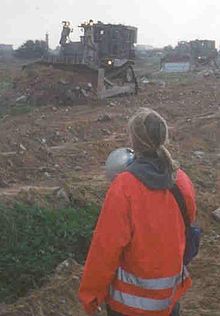Category: Press Releases
-
ISM’s response to the Rachel Corrie verdict
The International Solidarity Movement (ISM) is deeply concerned by the verdict of Judge Oded Gershon that absolved Israel’s military and state of the 2003 murder of American ISM activist Rachel Corrie. Rachel was crushed to death by an Israeli army bulldozer while protesting the demolition of a Palestinian home in the Gaza Strip. Despite the…
-
RIP friend and comrade, Issa Slybi
Our friend and comrade Issa Slybi passed away of cancer on 30 July 2012. The International Solidarity Movement shares their bereavement at the loss of a great friend and ally in the Palestinian cause, and offers condolences to all friends and family. Rest in peace, dear friend.
-
End the Assault on Gaza: joint statement Gazan civil groups
23 June 2012 | Besieged Gaza, Occupied Palestine We condemn in the strongest possible terms the latest Israeli war crimes committed against our people in the Gaza Strip. We call on the international community and the Arab and Islamic worlds, to take up their responsibility to protect the Palestinian people from this heinous aggression and…

